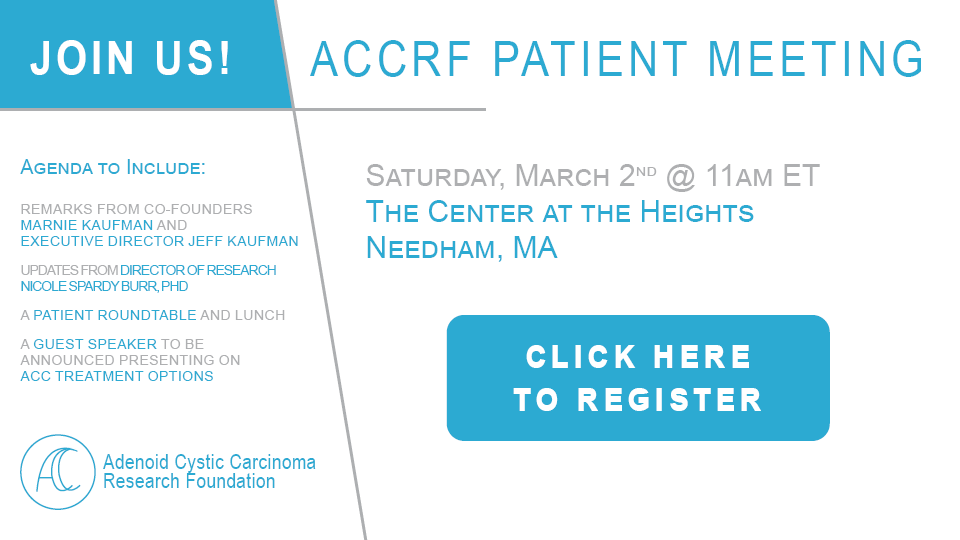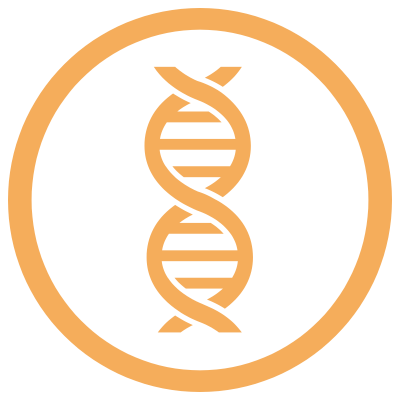For Patients
For Researchers
What is Adenoid cystic carcinoma (ACC)? It is a cancer of secretory glands, typically originating in the head and neck region, but also found in the breast, skin and elsewhere.
How rare is ACC? It is diagnosed in about 4 of every 1 million people each year and afflicts more than 200,000 patients throughout the world.
Who gets ACC? It is an equal-opportunity disease that might strike anyone. It is not inherited nor associated with smoking, drinking, infection or ethnicity. Women make up 60% of cases.
What happens with ACC? Nearly half of patients are cured by surgery and radiation. About half of patients eventually experience recurrences, usually distant metastases to the lungs. Lifetime monitoring is standard. Recurrences typically progress gradually although some cases are aggressive.
Is there hope? Together with a growing network of researchers, ACCRF is accelerating research efforts to find effective therapies and a cure for recurrent ACC.
The Adenoid Cystic Carcinoma Research Foundation (ACCRF) was started in 2005 with the goal of getting better therapies to ACC patients as fast as possible. Over the past 15 years, a motivated community of patients and researchers has fueled advances in scientific understanding and a strong pipeline of ACC clinical trials. ACCRF has been instrumental in bringing about all the major ACC research milestones.







